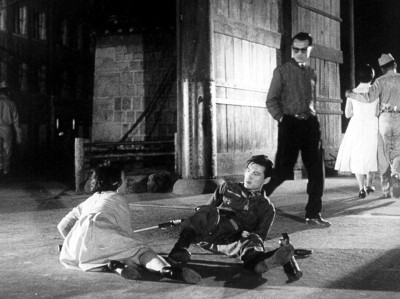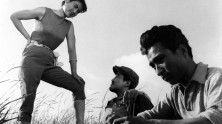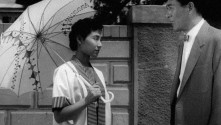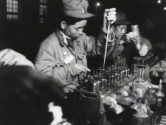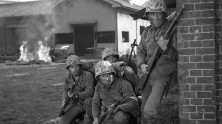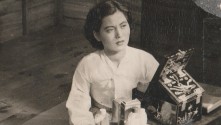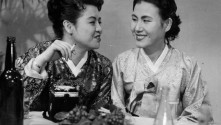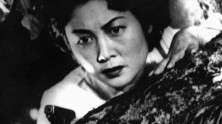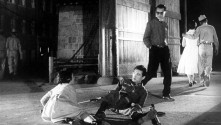
The Hand of Destiny
(Unmyong ui son)
With Yun In-ja, Yi Hyang, Ju Son-t'ae.
South Korea, 1954, 35mm, black & white, 85 min.
Print source: Korean Film Archive
Han Hyung-mo was one of the most commercially successful film directors in 1950s Korea and the first to implement a production company system in South Korea. The second film Han Hyung-mo directed and the first made through Han Hyung-mo Production, The Hand of Destiny presents the miserable fate of North Korean spy Chong-ae, who falls in love with South Korean counterintelligence officer Yong-ch'ol. Aside from marking the first appearance of female spies in Korean film, Chong-ae‘s espionage provides an alibi for exploiting female bodies as a dual means for admiring and promoting “American” spiritual and material values while resolving the ensuing frustration over traditional masculinity in crisis. Chong-ae‘s identity alternates between an “Americanized” Western bar girl named Margaret and the docile “Korean” Chong-ae. As Margaret absorbs American culture initially to hide her communist identity, it ends up awakening her desire for true freedom, which she names “humanitic” in English. While Yong-ch'ol praises the “humanitic” side of Margaret, he punishes and eventually erases her liberal pursuit of sexual desire—illustrating how Americanism was appropriated to suture the growing cracks within Korean patriarchy in postwar South Korea due to the very propagation of “American values.”
